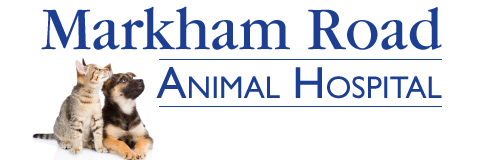Library
-
Nystatin combinations (brand names Panalog®, Cortalone®, Animax®, Derma-vet®, Quadritop®, Dermalog®, Dermalone®, EnteDerm®, Resortin®) are applied topically to the skin and are used on and off label to treat skin lesions in cats, dogs, and other mammals.
-
Nystatin, neomycin sulfate, thiostrepton, and triamcinolone topical/otic (brand names Animax®, Dermalog®, Panalog®, Quadritop®) is a combination antimicrobial (neomycin, thiostrepton), antifungal (nystatin), and steroid (triamcinolone) medication used to treat infections and inflammation of the skin, ears, and anal glands in cats and dogs. It may be used “off label” or “extra label” in other animals or conditions. This medication comes in ointment form.
-
Nystatin is an antifungal, given by mouth in the form of a tablet or liquid suspension, and used off label to treat Candida fungal infections in dogs, cats, birds, and reptiles. Side effects are rare, but at high doses, it could cause stomach upset or mouth irritation. It should not be used in pets that are allergic to it.
-
Obesity is a major problem in older birds on seed-based diets and can contribute to diseases such as arteriosclerosis, atherosclerosis (fat deposits in major arteries), and fatty liver disease (hepatic lipidosis). Unlike their wild counterparts, pet birds are not given as much opportunity for daily exercise. Pet birds often burn off very few calories in their daily lives. Switching a bird from an all-seed diet to a more suitable diet consisting mainly of pellets, with smaller amounts of fresh vegetables and fruit, will decrease its overall daily intake of calories.
-
In North America, obesity is the most common preventable disease in cats and is one of the most common overall. Almost 60% of domestic cats are overweight. Scientific evidence now reveals that fat tissue is biologically active; it secretes inflammatory hormones and creates oxidative stress on the body's tissues, both of which contribute to many diseases and a decreased quality of life. Treating obesity as a chronic, low-level inflammatory condition is the new approach.
-
In North America, obesity is the most common preventable disease in dogs. Almost 50% of domestic dogs are overweight. Scientific evidence now reveals that fat tissue is biologically active; it secretes inflammatory hormones and creates oxidative stress on the body's tissues, both of which contribute to many diseases and decreased quality of life. Treating obesity as a chronic, low-level inflammatory condition is the new approach.
-
If your cat has a complicated condition or is not getting well, you may want to seek a specialist referral or a second opinion. Your veterinarian will likely help you get this set up as they want what is best for your pet. You will likely need to travel in many situations for a specialty referral.
-
If your dog has a complicated condition or is not getting well, you may want to seek a specialist referral or a second opinion. Your veterinarian will likely help you get this set up as they want what is best for your pet. You will likely need to travel in many situations for a specialty referral.
-
Oclacitinib is given by mouth and is used to treat allergic dermatitis in dogs and has also been used off-label to treat other types of skin conditions. Give as directed. Side effects are uncommon but may include stomach upset such as vomiting, diarrhea, or decreased appetite. Do not use in pets with severe infections or in pets younger than 12 months old. If a negative reaction occurs, please call the veterinary office.
-
Ocular lubricants (brand names OptixCare® Eye Lube Plus, Remend® Eye Lubricating Drops, I-Drop® Vet Plus Lubricant/Gel) are tear replacement agents used to add moisture to the eyes in cats, dogs, and exotic companion animals. Ocular lubricants come in gel and liquid drop forms.

